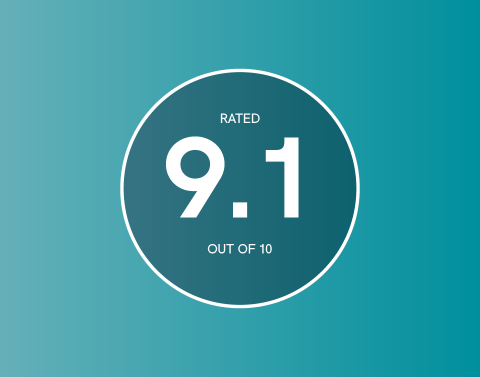‘Big data’ is the phrase on everyone’s lips right now.
It’s affecting organisations of all sizes and sectors, and the most astute are already exploring what commercial value they can derive from rigorously designed, modelled and integrated data. This ever-changing context has yielded greater demand for skilled data analytics teams, and recruitment in this space has needed to adapt on a major scale. We have gained in-depth knowledge of the market over six years, seeing it become a focal point within a cross-section of industries. Here are our views on what constitutes a high-performing data analytics team…
Structure
Many companies fall into the trap of hiring data scientists without leaders, and in turn, do not achieve the results they want. It is imperative that an organization invests in a senior leader that can develop a structure and road map for the business' data capabilities. Involved in this strategy is the sourcing of talent than can leverage both strategic and technical expertise, creating a combination of data engineers, analysts and data scientists with commercial experience that can ensure the data models are not only properly implemented but commercially communicated.
Model development
While it is important to have a transparent reporting line in place, the principal aim of any successful data analytics team is to create effective models. It takes a unique skill set to build, develop and implement models that can demonstrate the business impact of data sets and create actionable insights. The data scientists building the models should be able to clearly articulate the results to professionals across the organization, working in close collaboration with all functions.
Business acumen
As touched upon, there must be a focused commercial rationale behind good model development. The best data analytics teams adopt a business-first mentality, focusing on the problems identified at an executive level and how data analytics can provide appropriate solutions. The team will also consider how the models they build translate into beneficial commercial insights. Telling a story with the data to stakeholders who have differing agendas and objectives is a key contributor to the continued success of this remit.
Segmented vs. centralized
It is essential that data teams are carefully embedded within an infrastructure if they are to perform consistently, and this is dependent on whether they are centralized or segmented. Centralized teams tend to run analytics in ways that reflect the overall operation, while segmented teams mine the data on a more removed or regional basis. Both have their merits, it is simply about finding the right route for the data strategy at hand.
At present, the most successful data analytics teams are rooted in clever hiring, technical aptitude and solid communication. The most common challenge faced in gathering such teams is the sourcing of talent that unites technical experience and business acumen. Equally, individuals moving into data science from related disciplines may not always know what they can do to differentiate themselves in the market. The most frequent questions we hear surrounding these issues include:
- Should I do a Ph.D., MBA or M.S. in fields such as Statistics, Physics or Business Analytics?
- Will data science boot camps add value and improve my resume?
- How do I work in a senior leadership position while keeping up with the latest technology?
The Future of Data Analytics
Oliver James expects that requirements will become even more intricate as the market adapts to new demand.
Firstly, we project that data volumes will continue to amplify, thanks to the IoT and an ever-increasing amount of internet-connected devices. Alongside this growth in volume, we believe there will be a rise in companies appointing chief data officers and chief analytics officers to answer the need for distinct hierarchical structures.
Another feasible prediction will be the prevalence and implementation of data analytics in diverse markets, with the skill set becoming more industry-agnostic. As a result, big data could face massive challenges around privacy and business ethics, ranging from issues of Fair Lending act violations to what data can be used in which areas, where the data is being procured, and how third-party sources will utilize it. Who is the true owner of the data and how will their intentions be regulated? There is sure to be some illuminating answers to these questions over the coming years.
It will come as no surprise that businesses effectively utilizing data will be more productive than those that don’t. This means organizations will be better able to target and cross-sell products, tailor their offerings to suit buying trends, and increase customer loyalty.
We will be interested to see the commercial results after a period of sustained growth within these functions, especially regarding which companies are leading the way based on their investment in data analytics. Right now, the biggest fear for an organization is building and investing in a data science team that provides no business value.
From a hiring perspective, it is important you partner with a business that understands where the market is headed, and this is something Oliver James prides itself on. Our data specialists attend regular conferences and technical seminars to stay abreast of the industry’s latest developments, which we feed into our service to clients and candidates within this field. We also go beyond recruitment to understand the overall business aims of our clients, so we can offer strategic insight into the marketplace, who you should be hiring, and what your competitors are doing in this space.
For a confidential discussion surrounding your recruitment needs in data analytics, feel free to contact one of our regional experts…
US
Anna Davies, Associate Vice President, +1 646 833 2675, anna.davies@ojassociates.com
UK
Denesh Gnanalingam, Managing Consultant, +442038619140, denesh.gnanalingam@ojassociates.com
Benelux
Jan den Hartog, Managing Consultant, +31202900207, jan.denhartog@ojassociates.com



